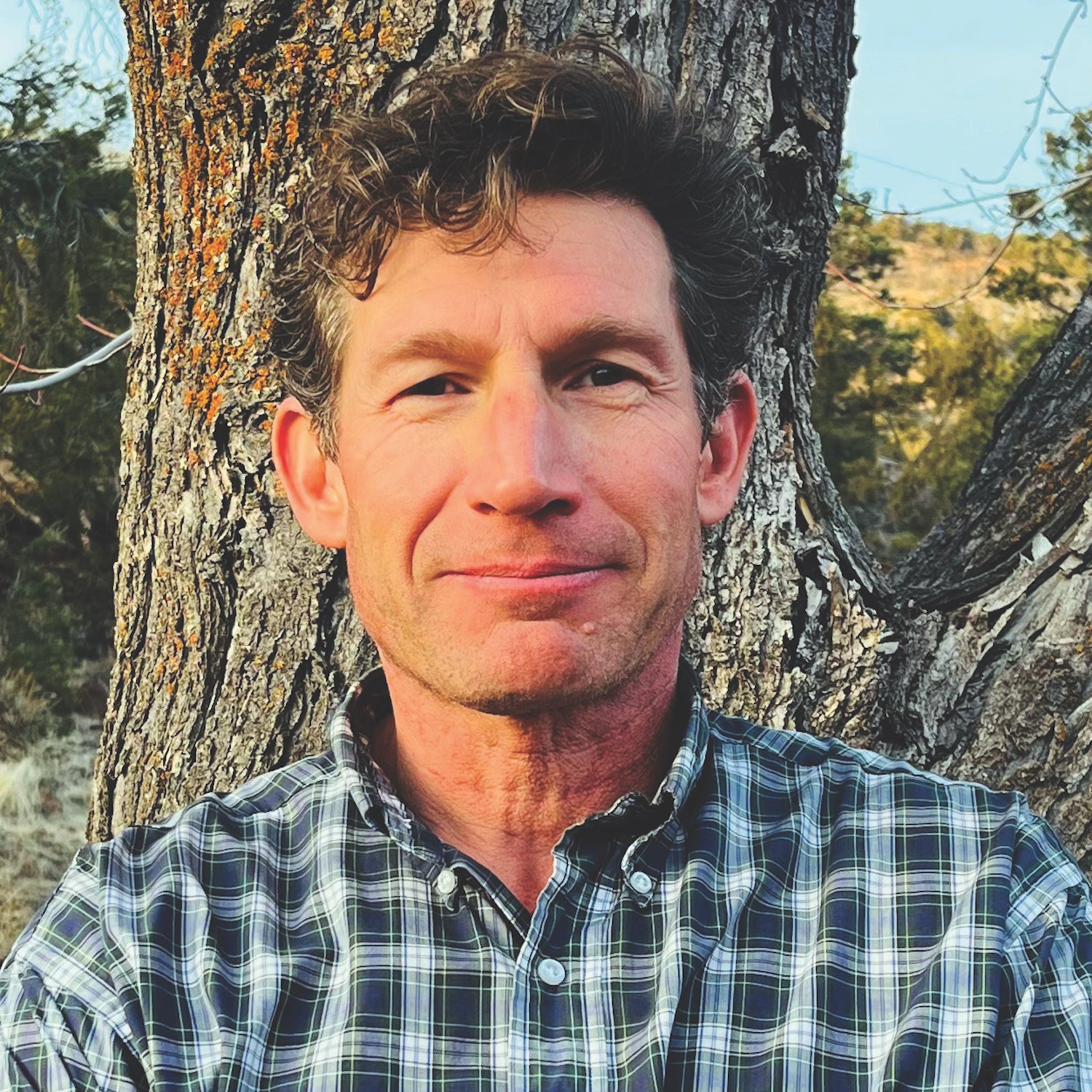Auden Schendler, one of the biggest climate advocates in the outdoor industry, doesn’t start his new book, Terrible Beauty, with any of the myriad lessons he’s learned over decades of environmental work. Schendler, who is vice president of sustainability at Aspen One (parent company of Aspen Snowmass), doesn’t drop into scare tactics, or data, or the myriad ways global warming is harming recreation, business, and our ability to thrive. Instead, he opens with a camping trip in the Utah desert with a couple of buddies, chasing down dirt devils for the sheer glee of being outside in a storm.
If you buy through our links, we may earn an affiliate commission. This supports our mission to get more people active and outside. Learn more.
The book goes on to examine the ways we need to approach environmentalism if we want to experience that joy in the future. In his 25 years heading up sustainability initiatives for one of the ski industry’s biggest corporations, Schendler has been at the forefront of climate action. He converted Aspen’s utility to renewables, convinced its tissue supplier to stop cutting down old-growth trees, and led the outdoor industry in political lobbying. But he says we need to do more. A lot more. Corporate sustainability is failing, he says, and individuals aren’t leveraging enough of our personal and political power because we’ve been cowed into thinking we don’t have any. And now, the clock is ticking. According to Schendler, modern environmentalism is broken—but he has some ideas about how to keep it moving forward.
Terrible Beauty: Reckoning with Climate Complicity and Rediscovering Our Soul is a book about citizenship, the pursuit of purpose, and uphill battles you might not win but have to keep fighting anyway. It’s a book about right now.
What do you hope people take away from this book?
I want to suck people into the joy of the universe, then give them that technical payload on climate in a way that motivates them. When you ask people, “What do you care about?” It’s things like community and family and wild places. But when you ask them, “What are you doing to protect those things against this existential threat?” they throw up their hands. I wanted to give people tools to figure it out. So there’s a bunch of stuff about banks and how the financial sector impacts climate change, but this is a book about the human experience. I’m trying to say modern environmentalism is failing, but what can replace it? Can it be exciting?
Let’s talk about that failure. You’ve that skiing is toast, and that we’ve failed on climate as a society. How do we go forward in the face of that?
When you’re in a movement that’s losing it’s not glamorous, but this is where I think there’s a connection to the outdoor world. The purpose has to come in the doing of the thing. It’s like type 2 fun. It’s not about winning or losing—I think in any human endeavor it’s very rare to be able to say, “yes, we won.” Instead, we have to think about it like a practice. We’re improving the world. As much as a day in my life as a climate fighter is depressing, it’s also fascinating and weird and filled with these odd twists and turns and micro wins and crippling losses. There’s a lot of glee in getting into mischief.
You argue that the ways we’ve largely been doing environmental work, particularly corporate sustainability, isn’t actually addressing the root causes of global warming. How do we change?
When we discovered that CO2 was going to be a problem in the fifties, we should have started getting off [fossil fuels], but we didn’t because we were misinformed, or because politicians were bribed, and since then we’ve been working toward targets that are in line with what the fossil fuel industry would want. For instance, in my world, the outdoor world, you could say, “let’s talk about recycled skis,” but that doesn’t really move the needle. Instead, we need to be publicly lobbying our peers and elected officials on climate.
What can someone like me, who isn’t part of a big business or advocacy group, do to move the needle?
My prescription is this: You get a six pack and you get a few smart friends, and you ask each other “Where do we have power?” You come up with an answer, then dismiss it if it’s not to scale.
Think about environmental activist Greta Thunberg, who said “I’m going to sit in this one spot for a year.” That helped. You have to just try some stuff. The question is really: Do we want to be citizens or not? Can you go to a town council meeting and talk about the planning and zoning board? You can’t just sign an online letter and call it good. You have to do real stuff and move your body and get out into society, instead of giving into the inclination to stay in or avoid confrontation.
That requires bandwidth, and there are people who don’t have that, and that’s OK too. Revolutions don’t come from 100 percent of the population mobilizing, it’s typically 4 to 9 percent, and that can make a difference.
Bandwidth, and who has the ability to act on climate, seems like a really big part of the conversation.
When climate is forcing you into survival mode, you don’t have the leisure that humans need to thrive. You can’t just be recovering from the last fire or flood all the time. This is environmentalism writ large right now. You think I have the luxury to care about climate? I can’t feed my family or pay my health care bills. This gets to the broader question of whether we’re actually taking care of each other, and we’re not.
The tension in the book is that the thing that could destroy us is also a fundamental opportunity for change as a society. How do you walk that line?
The cover of the book meant to express that. Like, “Damn, this thing is kind of fucked up, but it’s still beautiful.” I think about Tolkien’s idea of the long defeat, and how we’re in this long battle of good versus evil. We’re slogging through Mordor. I think this is humanity’s biggest project but we’re still making things better. It’s going to be uncomfortable and hard, but it can still be full of purpose and joy.


